Digging in the Dirt: February Planting & Chapter Projects
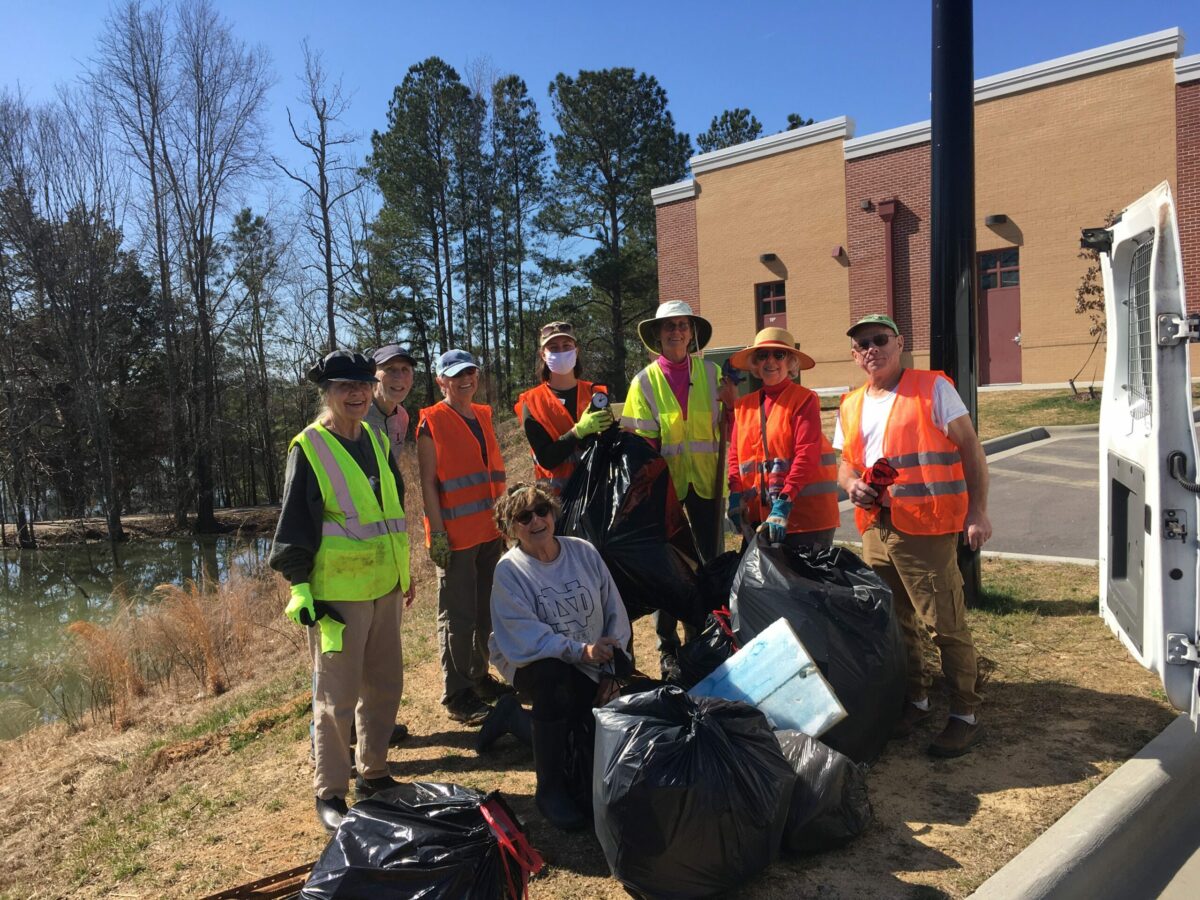
February planting and chapter highlights
North Carolina Wildlife Federation staff and Community Wildlife Chapter volunteers did a whole lot of dirt-digging, planting, litter collecting and wildlife watching in February to promote healthy wildlife habitat and get people outside.
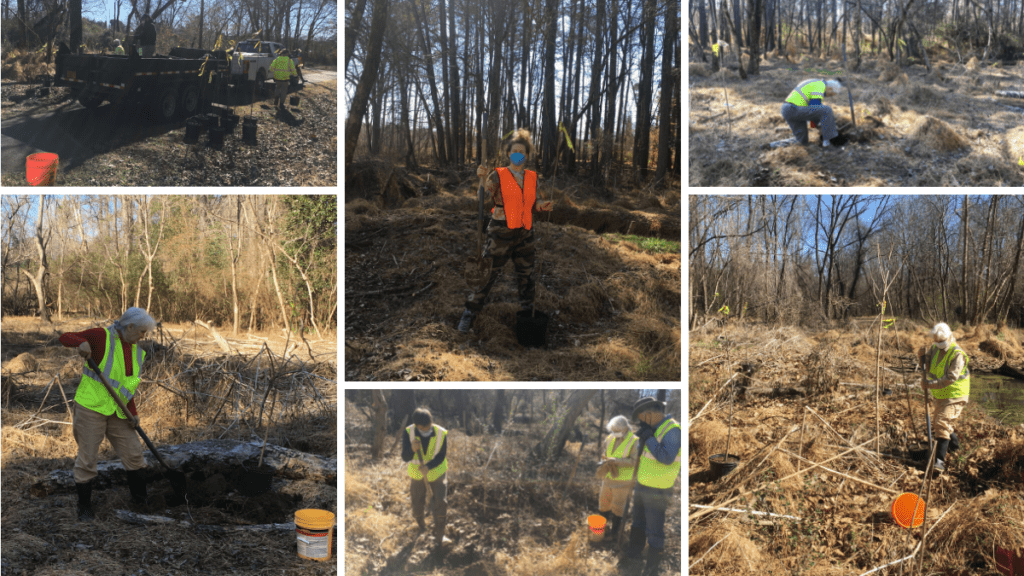
Staff and volunteers from NCWF and Raleigh Parks and Recreation gathered at Apollo Heights Park to plant more than 100 oaks, sycamores and other native tree species to support habitat along the Walnut Creek Parkway. Volunteers also removed invasive Chinese privet, which has overtaken much of the habitat from the wetland area. The area has recently undergone heavy canopy loss due to the invasion of the emerald ash borer, which has decimated ash trees in North Carolina and across the country. Replacing lost trees and adding native trees to the landscape is crucial to restoring canopy and habitat. The trees planted count toward our Clean & Green program, which aims to restore habitat by removing trash and replacing it with native plants. NCWF plants one native tree or shrub or 10 pollinator plants for every 25 pounds of trash removed from the environment. This habitat restoration effort was made possible through the generous support of volunteers and the Jandy Ammons Foundation.
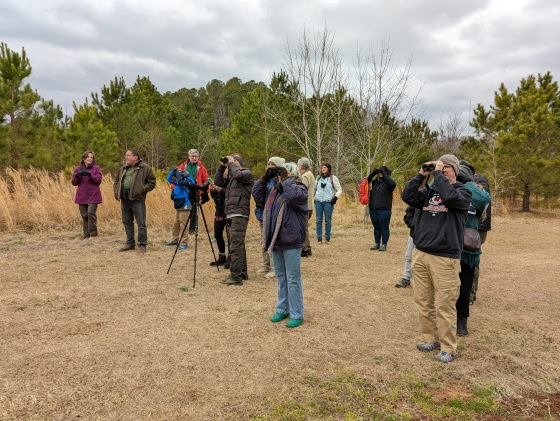
South Wake Conservationists, Piedmont Naturalists Meetup members and other wildlife enthusiasts braved chilly weather for the chance to spot eagles and take in views at the Jordan Lake Dam. The group spotted several eagles flying above the Haw River and hanging out in the tree, as well as herons and cormorants catching fish and a group of black vultures circling above.
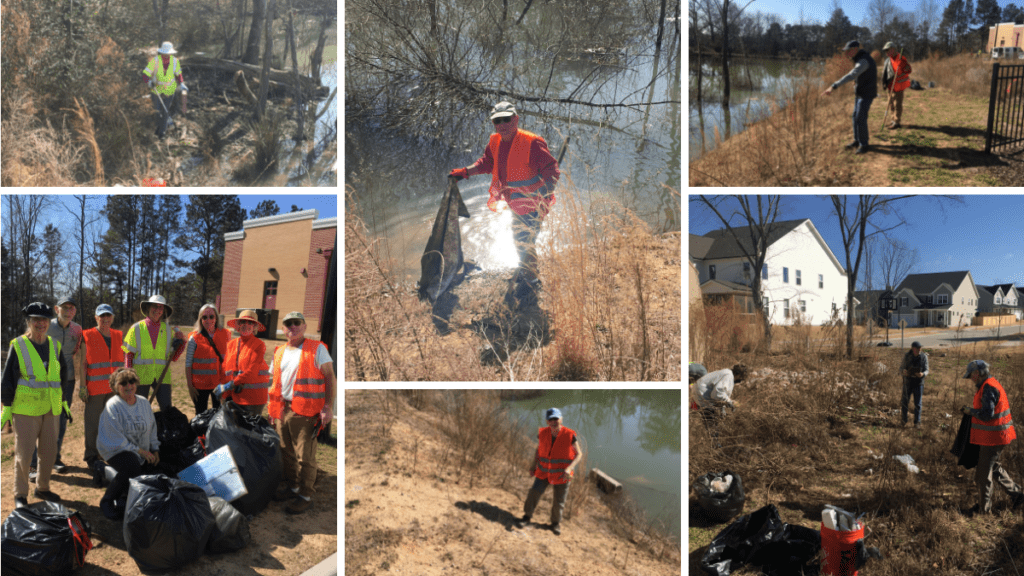
Neuse River Hawks chapter members developed a pollinator program to educate developers and homeowners about eco-conscious landscape designs supporting wildlife, birds, waterfowl, insects and other pollinators. The program includes a list of native trees, shrubs, and flowers to help sustain and balance the ecosystem and a “do not plant” list of invasive plants to remove or avoid using. Chapter members also are working with the parks department to create pollinator gardens in parks and to plant wildflowers along the greenway. Volunteers also helped remove 100 pounds of litter and plant five pounds of a native seed mix on Optimal Equity Corp property to support wildlife and pollinator conservation.
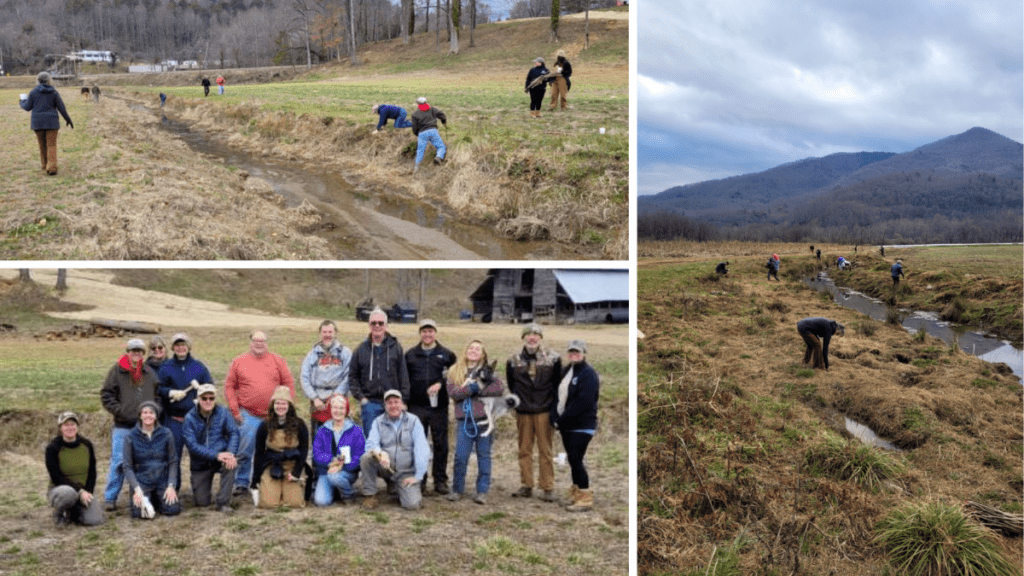
NCWF and Mainspring Conservation Trust planted 1,400 livestakes (native trees and shrubs) in Bryson City on Darnell Farms. The plant installation will help stabilize a conservation easement shoreline and promote a healthy, stable habitat for terrestrial and aquatic wildlife species.
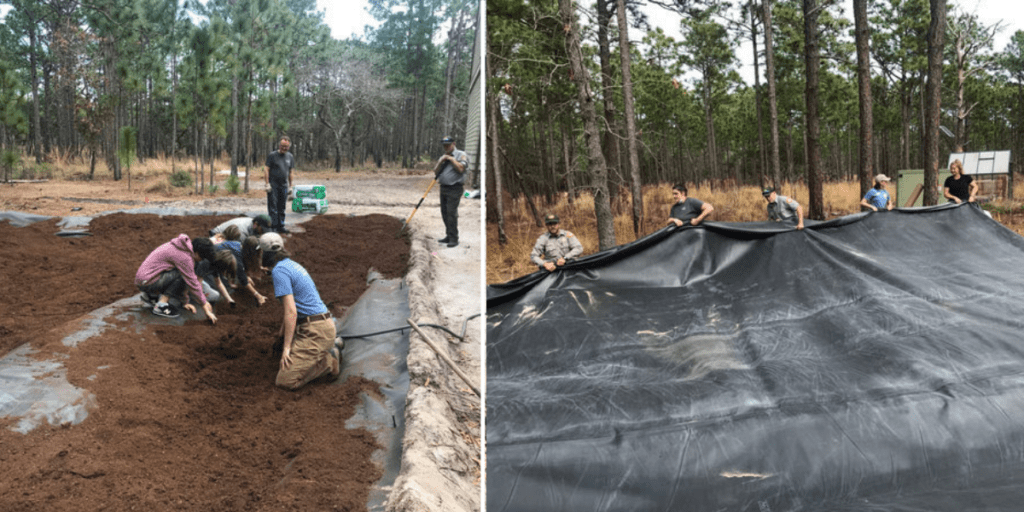
Staff, volunteers and park visitors from NCWF, Island Wildlife and Friends of Pleasure Island State Park installed a pond liner and peat for a carnivorous bog garden that will restore Venus flytrap habitat and help reduce plant poaching at Carolina Beach State Park.
3 ways to support wildlife habitat
- Download our Habitat Restoration Volunteer Toolkit to learn how you can organize trash clean-up and planting events in your community.
- Sign up for our weekly Butterfly Highway newsletter, which has everything you need to know about pollinators and native plants for your yard and where to buy them.
- Explore our Events Calendar to find out where NCWF and our Wildlife Community Chapters are hosting habitat restoration activities near you.

